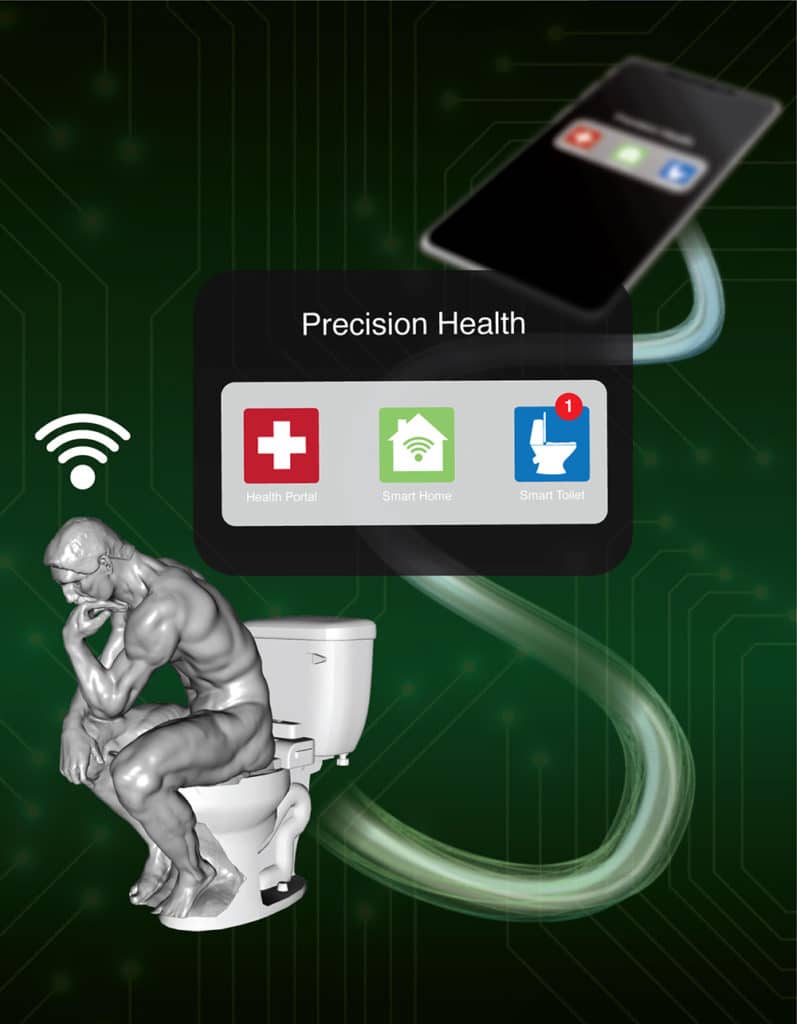Human urine and feces contain a lot of information about human health and wellbeing, and therefore scientists and engineers are developing new technologies that could help us unlock it. Among them is a group of scientists from Stanford University, which is developing new disease-detecting technology in the lab.
They recently introduced a new type of “smart toilet” fitted with the technology that automatically scans urine and faeces for possible signs of disease. The intelligent toilet system can detect different types of cancer, such as colorectal or urologic cancers, as well as some digestive and kidney disorders.
“When I’d bring it up, people would sort of laugh because it seemed like an interesting idea, but also a bit odd,” said Gambhir, professor, and chair of radiology. With a pilot study of 21 participants now completed, Gambhir and his team have made their vision of a precision health-focused smart toilet a reality.
The advantage of this toilet system is that it can be installed relatively easily on an existing toilet and adapts to the inside of the bowl. The attachment is packed with various sensors and cameras that capture video of urine and feces, which is then processed by a set of algorithms that can distinguish normal “urodynamics” (flow rate, stream time and total volume, among other parameters) and stool consistencies from those that are unhealthy.

Of course, the device also monitors biological characteristics such as white blood cell counts and levels of certain important proteins that are indicative of a variety of diseases.
To differentiate the plurality of people who will probably use the smart toilet, the system is equipped with a fingerprint scanner on the flush lever. However, the Gambhir team realized that there might be scenarios in which one person uses the toilet, but another flush it or the toilet drains automatically after use. To solve this problem, the team added a small scanner that images a rather camera-shy part of the body.
“We know it seems weird, but as it turns out, your anal print is unique,” said Sanjiv “Sam” Gambhir, professor and chair of radiology. The scans – both finger and nonfinger – are used purely as a recognition system to match users to their specific data. No one, not you or your doctor, will see the scans.
To test its concept, the team carried out a pilot study involving 21 participants. For several months, all of them used the toilets, which enabled scientists to establish personalized health checks. Gambhir hopes to test it with more adherents as they continue to make improvements, such as a real biochemical analysis of stool.
Gambhir’s other goal is to further develop a molecular analysis for stool samples. “That’s a bit trickier, but we’re working toward it,” Gambhir said. “The smart toilet is the perfect way to harness a source of data that is typically ignored – and the user doesn’t have to do anything differently.”
Journal Reference:
- A mountable toilet system for personalized health monitoring via the analysis of excreta. DOI: 10.1038/s41551-020-0534-9
